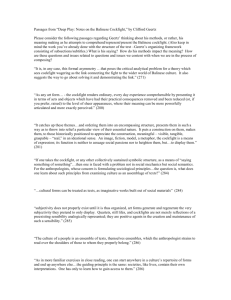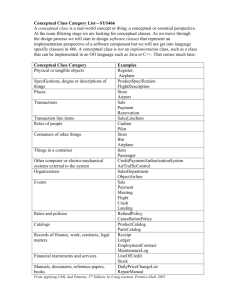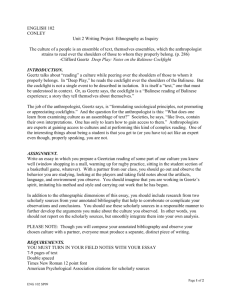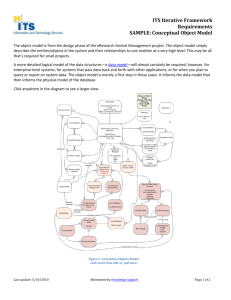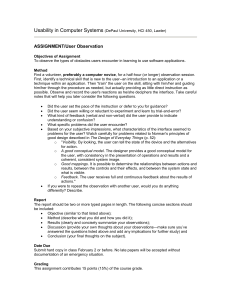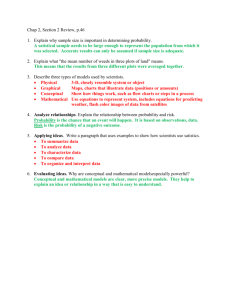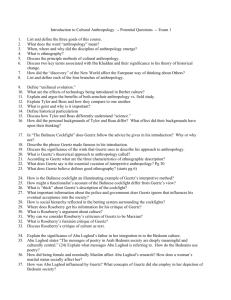William Roseberry
advertisement
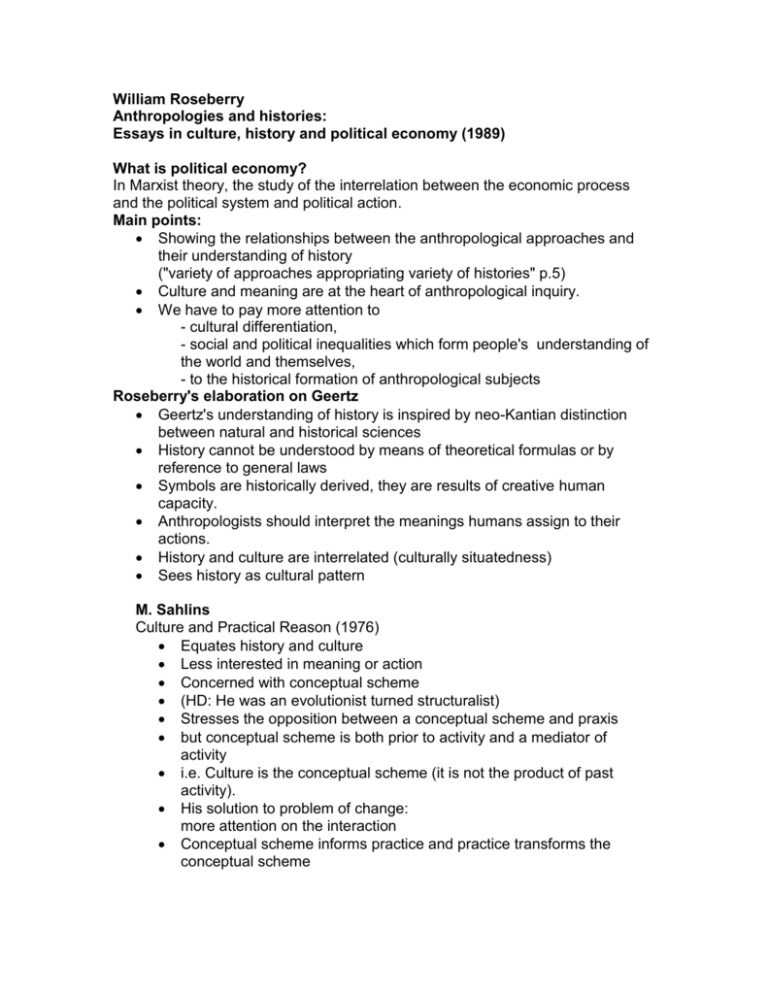
William Roseberry Anthropologies and histories: Essays in culture, history and political economy (1989) What is political economy? In Marxist theory, the study of the interrelation between the economic process and the political system and political action. Main points: Showing the relationships between the anthropological approaches and their understanding of history ("variety of approaches appropriating variety of histories" p.5) Culture and meaning are at the heart of anthropological inquiry. We have to pay more attention to - cultural differentiation, - social and political inequalities which form people's understanding of the world and themselves, - to the historical formation of anthropological subjects Roseberry's elaboration on Geertz Geertz's understanding of history is inspired by neo-Kantian distinction between natural and historical sciences History cannot be understood by means of theoretical formulas or by reference to general laws Symbols are historically derived, they are results of creative human capacity. Anthropologists should interpret the meanings humans assign to their actions. History and culture are interrelated (culturally situatedness) Sees history as cultural pattern M. Sahlins Culture and Practical Reason (1976) Equates history and culture Less interested in meaning or action Concerned with conceptual scheme (HD: He was an evolutionist turned structuralist) Stresses the opposition between a conceptual scheme and praxis but conceptual scheme is both prior to activity and a mediator of activity i.e. Culture is the conceptual scheme (it is not the product of past activity). His solution to problem of change: more attention on the interaction Conceptual scheme informs practice and practice transforms the conceptual scheme Geertz Not what people did but the patterns of cumulative activity Sahlins not practices of differently situated and positioned actors but practice as theoretical category "culture is enacted not acted" E. Wolf History is a material social process, it is uneven(economic and political inequality domination) it is about transformations of cultural terms it is about transformations of entire social orders We cannot have analytical boundaries around particular areas. Differences between the approaches The main issue is the different vision of the "Other" Other different and separate (product of its own history and carrying its own historicity) We should understand the meaning or structure Other different and connected No culture with its own structure and history Seduction of anthropology Roseberry gives us feeling of the intellectual environment Greetz gained his prominence Post-Boas, Harris's cultural materialism, lack of interest in meaning Concept of culture as socially constituted and constituting Deep play (irrational participation) Cockfight is a simulation of the social matrix (status blood bath) It is about status hierarchy It is a site of sexual differentiation and seclusion Cockfight symbolizes resistance against colonial power therefore related to political process of state formation The cockfight has gone through a process of creation and cannot be separated form Balinese history To see culture as an ensemble of texts is to remove it from the process of its creation Cultural creation social and cultural differentiation culture as a material social process culture should not be treated as a product but production Marxism and culture rejects explanatory science and general laws Regards ideas as social products and understands social life as objective Interested in contextualizing public symbols and meanings in terms of differential access to political and economic power Eric Wolf Europe and People Without History (1982) Main point: is to stress interconnectedness of the world, see it as a totality Disassembling the totality tantamounts distortion of reality E.g. naming through concepts We recognize the connections but mainly in relation to today HD: Look at the labels of your clothes What about the distant past Movement of goods and peoples Archeological findings which support these Why do we then insist on disconnecting. Is it through the creation of a unit called the West? Naming and implications of it Mid 19th century specialization of disciplines Ideological reasons for split became justification for the specialties themselves (Remember Cohn's point about academic relations) Emergence of sociology relationship between science of society and current social disintegration Assumptions Individuals enter into relationships. The realm of the social Social order depends on the growth and extension of social relations. Correlation between density and orderliness. Polarization increases if ties are weak. Strong ties are sign of common beliefs. Moral consensus helps to strengthen social ties Social relations and shared customs create a sense of society as a totality. Social relations constitute society, in turn cohesion, then predictability and stable internal structure. Postulations thereof social relations are autonomous casual (stripped from their economic, political, or ideological context) interactions between individuals become the prime cause of social life distraction form the consideration of economics, politics or ideology
